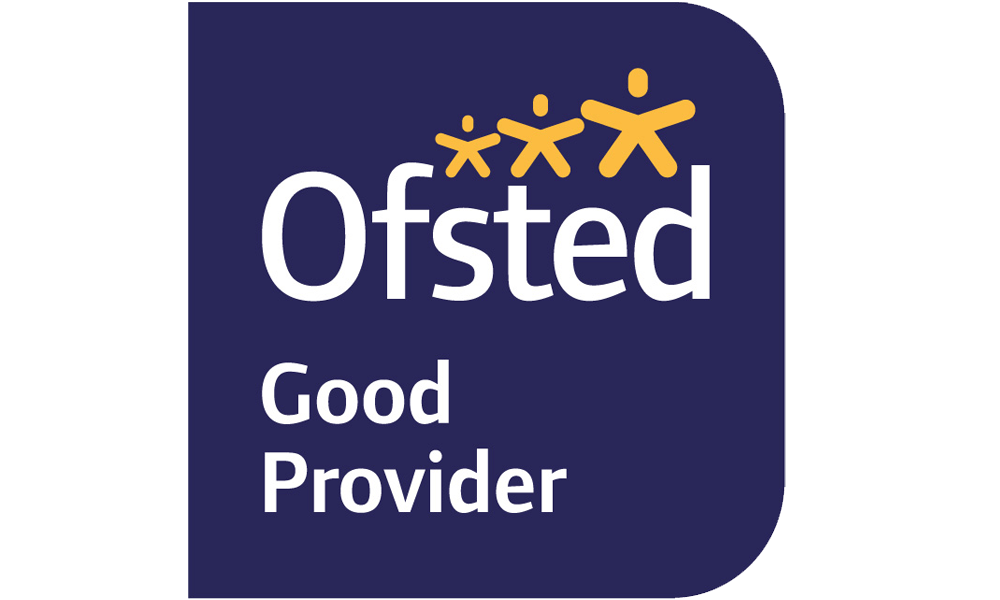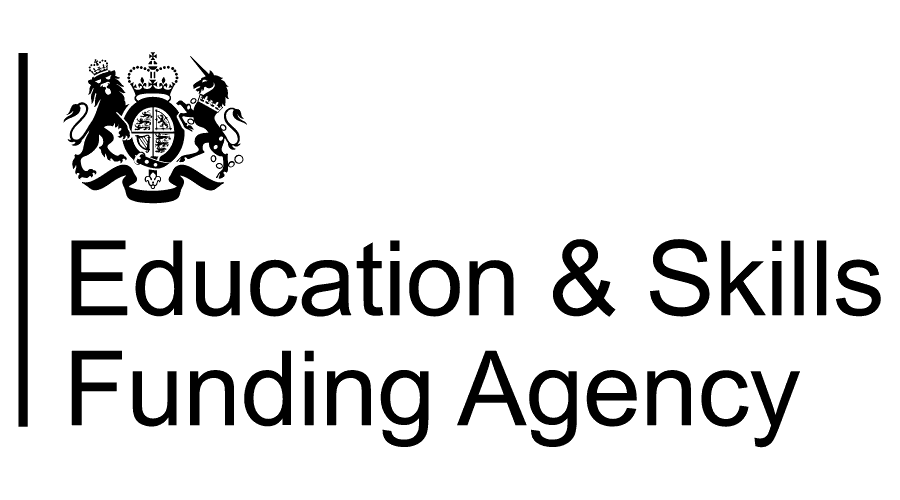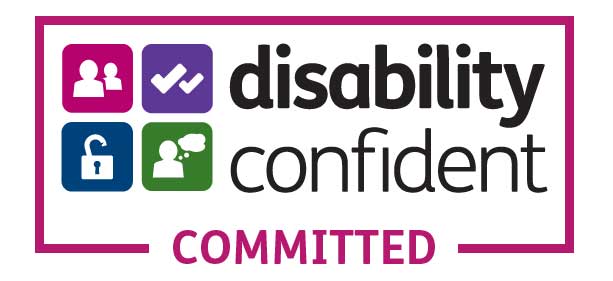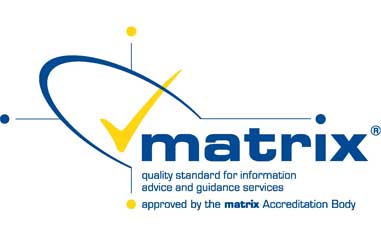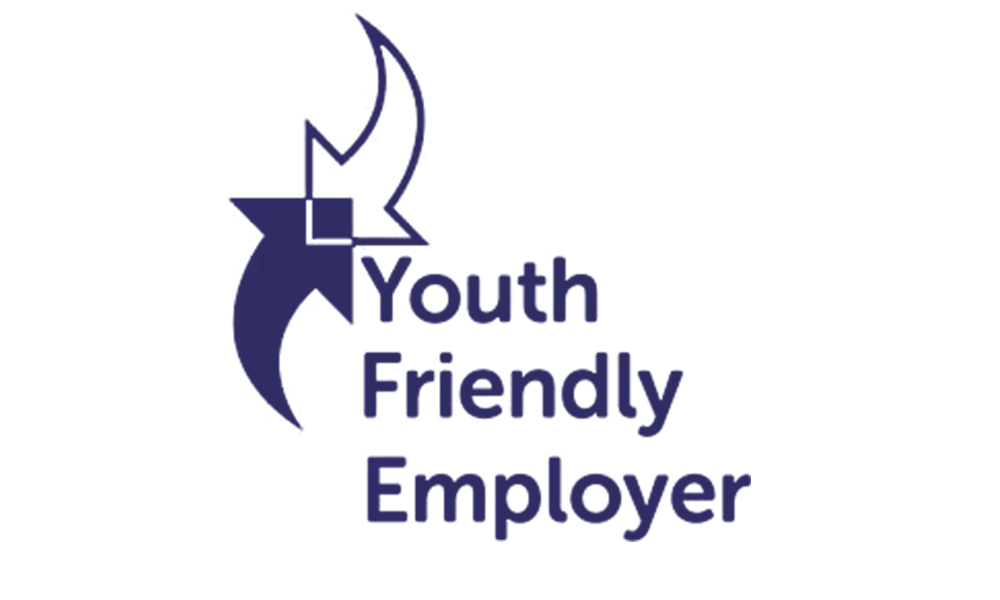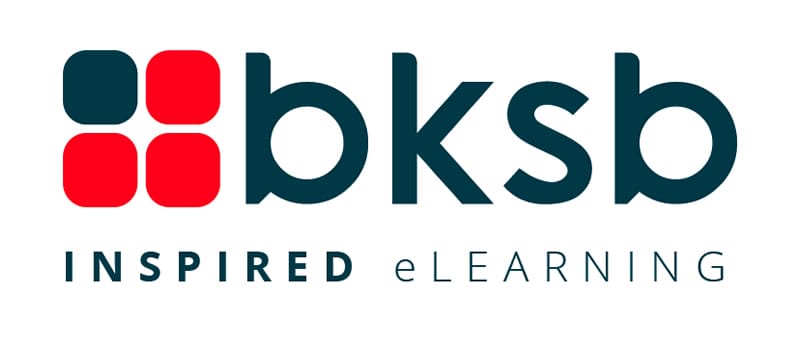Safeguarding Policy
0800 756 3985 info@eden-ts.com www.eden-ts.com Version 7 | Oct-23
Safeguarding Policy Acknowledgement
The purpose of this policy is to support the actions and priorities as set out in the Safeguarding Strategy which outlines Eden Training Solutions desire and commitment in promoting positive practices throughout the organisation.
Policy
The Safeguarding Vulnerable Group’s Act 2006 and The Care Act 2014 provides the legislation for:
- Providing a vetting and barring scheme for those working with children and vulnerable adults.
The Keeping Children Safe in Education 2023 lays the legislation for:
- Protecting children from maltreatment.
- Preventing the impairment of children’s mental and physical health or development.
- Ensuring that children grow up in circumstances consistent with the provision of safe and effective care.
- Taking action to enable all children to have the best outcomes.
As a provider of training, we need to ensure all reasonable steps are taken to ensure unsuitable people are prevented from working with our learners. Eden Training Solutions will take all reasonable steps to ensure that no person will be recruited to a position involving duties set out in the Education Act 2011; this includes posts where the normal duties, including training, supervising or being in sole charge of children or vulnerable adults. Our staff could be working alongside Vulnerable Adults which could include any employees, learners, and employers, including contractors undertaking work on our behalf.
Definitions of Vulnerable Adults
The Safeguarding Vulnerable Groups Act 2006 (section 59) defines a vulnerable adult as an adult who:
- Receiving a social care service
- Receiving a health service
- Living in sheltered accommodation
- Detained in custody or under probation
- Requiring assistance in the conduct of his / her affairs
As listed above, vulnerable adults may need care services by reason of mental or other disability, age, or illness and who may be unable to take care of themselves or unable to protect themselves against significant harm or exploitation.
Our learners, who are vulnerable adults, are therefore entitled to protection against abuse, including all forms of harm or exploitation.
Eden Training Solutions is committed to protecting our learners against all forms of abuse. All employees of the organisation have a responsibility toward our service users to ensure that, as vulnerable adults, they are protected from abuse.
Abuse is a violation of an individual’s human and civil rights by another person and may consist of a single act or multiple acts. As well as physical and psychological abuse, acts of neglect or an omission to act, may amount to abuse. Abuse may also occur when a vulnerable adult is persuaded to enter into a financial or sexual transaction to which he or she has not consented or cannot consent.
When dealing with our learners, Eden Training Solutions employees must remain vigilant at all times of the risk to our learners from abusive behaviour from various sources including members of the learner’s family, other learners, employees and in different situations.
If an employee believes a learner has been subjected to abuse, they should refer the circumstances to their line manager (or another manager if appropriate).
If the alleged perpetrator of abuse is another employee, the circumstances will be investigated fully under the Disciplinary Procedure.
If necessary, Eden Training Solutions will refer details of the circumstances to the Secretary of State so that details of the alleged perpetrator may be reported on a provisional basis to the Independent Safeguarding Authority (ISA), pending the outcome of disciplinary procedures. Upon full investigation, should the allegations be shown to be clearly groundless, Eden Training Solutions will act promptly to have the employee’s name removed from provisional ISA report. If, following full investigation of the circumstances, Eden Training Solutions determines that the perpetrator should be dismissed, the employee’s details will be referred to the ISA.
Keeping Children Safe in Education (KCSE) September 2023
All Eden Training Solutions staff are made aware of the requirements of the KCSE at induction as part of the Job Ladder process and undertake all necessary training required around the promotion of the policy with learners and employers, how to recognise potential signs of abuse and the reporting mechanisms available to support the process.
You can download the Keeping Children Safe in Education Information Pack Here
Definitions of Abuse
It is not the responsibility of anyone from Eden Training Solutions to decide whether someone has been abused. It is however everyone’s responsibility to report concerns. It is especially important that our employees understand what is meant by the term ‘abuse’. The different types of abuse are:
- Emotional Abuse
- Neglect
- Physical Abuse
- Sexual Abuse
- Negative Discrimination (including racism)
- Bullying (includes bullying by gangs; bullying by family members; physical bullying; verbal bullying; teasing; and physical and sexual harassment and violence)
The above includes both face to face and online social media/e-safety. In all cases of suspected or alleged abuse, advice and guidance must first be sought from the local Social Work Department and/or Local Authority Designated Officer (LADO) or the Police.
The Prevent Strategy
The Prevent Duty is the duty in the Counterterrorism and Security Act 2015 on specified authorities, in the exercise of their functions, to have due regard to the need to prevent people from being drawn into terrorism.
The main aim of the strategy is to:
- Respond to the ideological challenge we face from terrorism and aspects of extremism, and the threat we face from those who promote these views;
- Provides practical help to prevent people from being drawn into terrorism and ensure they are given appropriate advice and support;
- Work with a wide range of sectors (including education, criminal justice, faith, charities, online and health) where there are risks of radicalisation that we need to deal with.
The strategy covers all forms of terrorism, including far right extremism and some aspects of non-violent extremism.
The Home Office works with local authorities, a wide range of government departments, and community organisations to deliver the Prevent strategy. The police also play a significant role in Prevent, in much the same way as they do when taking a preventative approach to other crimes.
The Home Offices uses a range of measures to challenge extremism in the UK, including:
- Where necessary, preventing apologists for terrorism and extremism from travelling to this country
- Giving guidance to local authorities and institutions to understand the threat from extremism and the statutory powers available to them to challenge extremist speakers
- Funding a specialist police unit which works to remove online content that breaches terrorist legislation
- Supporting community-based campaigns and activity which can effectively rebut terrorist and extremist propaganda and offer alternative views to our most vulnerable target audiences – in this context they work with a range of civil society organisations
- Supporting people who are at risk of being drawn into terrorist activity through the Channel process, which involves several agencies working together to give individuals access to services such as health and education, specialist mentoring and diversionary activities.
Eden Training Solutions is committed to supporting vulnerable learners through its safeguarding agenda in order to prevent potential radicalisation.
Please see separate Prevent Policy for the necessary amplification of the above.
Working Safely On-line
Cyberbullying
Cyberbullying involves the use of electronic communication devices to bully people. These include mobile phones, tablets, iPods, laptops, and PCs. Social media platforms such as Facebook, Instagram, Twitter, and WhatsApp are used by cyberbullies to put out their communications.
Filters are applied to Eden Training Solutions systems which will restrict access to harmful content. The Director of Systems will oversee this.
Who is most at risk?
Children using social media unsupervised and vulnerable adults are particularly at risk if they are using social media, as they may be more emotionally and mentally susceptible to the abuse.
Examples of Cyberbullying
- Flaming – Online fights usually through emails, instant messaging or chat rooms where angry and rude comments are exchanged
- Denigration – Putting mean online messages through email, instant messaging, chat rooms, or websites set up to make fun of someone
- Exclusion – Intentionally leaving someone out of a group such as instant messaging, friend sites, or other online group activities
- Outing – Sharing secrets about someone online including private information, pictures, and videos
- Impersonation – Tricking someone into revealing personal information then sharing it with others
- Harassment – Repeatedly sending malicious messages to someone online
- Cyberstalking – Continuously harassing and denigration including threats of physical harm
Teaching and Learning On-line
As more and more teaching is being carried out over remote devices (Teams/Zoom) all staff have undertaken on-line awareness courses to ensure they are aware of the dangers. For the Skills Teacher role (group delivery) the IT department have created a bespoke bookings system where learners can book onto session throughout the year. The learners receive a confirmation e-mail and the following joining instructions:
Please note that by joining this session you agree to the following session ground rules:
- That you keep your camera on so that we can see you are visible and engaged within the session. If, from previous discussions with your Skills Coach it has been agreed that you do not need to do so then your Skills Teacher will have been made aware of this.
- That you always act professionally and are wearing clothing that would be deemed appropriate in your work setting.
- That you undertake the session in an appropriate room with your background filter on.
- That you will participate in a positive manner and always use appropriate language.
Grooming
Grooming is a word used to describe people befriending children and vulnerable adults to take advantage of them for sexual preferences. Grooming is also used by extremist groups to radicalise individuals in to supporting and potentially committing terrorist attacks.
What is sexual online grooming? Sexual online grooming is when people form relationships with children pretending to be their friend, using social media platforms to do so the person carrying out the online grooming will try to establish the likelihood of the child telling someone. They will also find out as much as they can on the child’s family and social networks.
Online groomers will tend to use chatrooms, which are focussed on young people. There are countless teen chat rooms on the internet. Those carrying out the grooming will pretend to be a child themselves, similar in age to the person they are grooming. They will even change their gender to make it easier to befriend the person they are grooming.
Grooming online is anonymous and children find it easier to trust an online ‘friend’ than someone they have met ‘face to face.’
Online Grooming
How do you know if a child/vulnerable adult is being groomed online?
- Wanting to spend more and more time on the internet
- Being secretive about who they are talking to online and what sites they visit
- Switching screens when you come near the computer
- Possessing items – electronic devices or phones – you haven’t given them
- Using sexual language, you wouldn’t expect them to know
- Becoming emotionally volatile
Grooming – In Person
Groomers will hide their true intentions and may spend a long time gaining a child or vulnerable adults trust and the likeliness of disclosure. They may try to gain the trust of the whole family to allow them to be left alone with a child or vulnerable adult.
Groomers may deliberately try to work with children or vulnerable adults and gain the trust of their colleagues. To gain trust, groomers will:
- Pretend to be someone they are not, for example saying they are the same age online
- Offer advice or understanding
- Buy gifts
- Give the child or vulnerable adult attention
- Use their professional position or reputation
- Take them on trips, outings, or holidays
Children or vulnerable adults may not speak out about their situation because they:
- Feel ashamed
- Feel guilty
- Are unaware that they are being abused
- Believe they are in a relationship with a ‘boyfriend’ or ‘girlfriend’
Peer on peer abuse (child on child)
All staff are aware that children can abuse other children (often referred to as peer-on-peer abuse). And that it can happen both inside and outside of work or an education setting and online. It is important that all staff recognise the indicators and signs of peer-on-peer abuse and know how to identify it and respond to reports.
All staff understand, that even if there are no reports in their workplaces or settings it does not mean it is not happening, it may be the case that it is just not being reported. As such it is important if staff have any concerns regarding peer-on-peer abuse, they should speak to their designated safeguarding lead (or deputy).
It is essential that all staff understand the importance of challenging inappropriate behaviours between peers, many of which are listed below, that are actually abusive in nature. Downplaying certain behaviours, for example dismissing sexual harassment as “just banter”, “just having a laugh”, “part of growing up” or “boys being boys” can lead to a culture of unacceptable behaviours, an unsafe environment for children and in worst case scenarios a culture that normalises abuse leading to children accepting it as normal and not coming forward to report it.
Peer on peer abuse is most likely to include, but may not be limited to:
- Bullying (including cyberbullying, prejudice-based and discriminatory bullying);
- Abuse in intimate personal relationships between peers;
- Physical abuse such as hitting, kicking, shaking, biting, hair pulling, or otherwise causing physical harm (this may include an online element which facilitates, threatens and/or encourages physical abuse);
- Sexual violence, such as rape, assault by penetration and sexual assault; (this may include an online element which facilitates, threatens and/or encourages sexual violence);
- Sexual harassment, such as sexual comments, remarks, jokes, and online sexual harassment, which may be standalone or part of a broader pattern of abuse;
- Causing someone to engage in sexual activity without consent, such as forcing someone to strip, touch themselves sexually, or to engage in sexual activity with a third party;
- Consensual and non-consensual sharing of nude and semi-nude images and/or videos (also known as sexting or youth produced sexual imagery);
- Upskirting, which typically involves taking a picture under a person’s clothing without their permission, with the intention of viewing their genitals or buttocks to obtain sexual gratification, or cause the victim humiliation, distress, or alarm; and
- Initiation/hazing type violence and rituals (this could include activities involving harassment, abuse or humiliation used as a way of initiating a person into a group and may also include an online element).
Child criminal exploitation (CCE)
Child criminal exploitation is complex and takes a variety of forms. In general, child exploitation occurs where an individual or group takes advantage of a power imbalance to coerce, control, manipulate or deceive a child or young person under the age of 18 into criminal or sexual activity or modern slavery. This can be in exchange for something the victim needs or wants, this is most likely to be the result of grooming, where a criminal has identified what a young person may want or need.
The power imbalance can be through a range of factors, including age, gender, cognitive ability, status, and access to economic or other resources. A young person may also experience poor mental health, have experienced bereavement or are being bullied which may make them more likely to be vulnerable to exploitation.
The victim may have been exploited even if the activity appears consensual, and exploitation does not always involve physical contact; it can also occur through technology.
CCE activity can include children being coerced into moving drugs or money across the country, forced to shoplift or pickpocket, or to threaten other young people. One of the most common types of CCE activity is called county lines. This involves organised drug dealing networks that exploit children and vulnerable adults to move, hold and sell drugs across the UK using dedicated phone lines to take orders. Exploitation is a key component of the business model and gangs use children because they are cheaper, more easily controlled and less likely to get picked up by the police. CCE can result in gang cultures being formed and increased risk of serious violence.
Children can be exploited as ‘runners’ (transporting drugs) but they may also undertake other roles such as cutting and bagging drugs, collecting debts or experience the ‘cuckooing’ of properties. Cuckooing involves taking over the home of a vulnerable person in a supply area to use it as a base for drug dealing.
Exploitation can affect any child but there are some children who may be at greater risk than others:
- Children in care – these children may be particularly vulnerable because of the situations and experiences that led to them to being brought into care.
- Children who have been excluded from school or are in alternative provision– young people may feel disenfranchised which can make them an easy target for perpetrators.
- Children living in poverty – who may be groomed through offers of material possessions or for money for themselves or their family due to financial concerns.
- Children with educational needs – this may be due to increased vulnerabilities but also due to not recognising exploitation, or not being able to access support.
- Children who are not UK citizens or do not have immigration status – the precariousness of their immigration status is an additional vulnerability that enables gangs to target them.
- Family connection – some children have family members who are involved in criminal activity and therefore fall into exploitation through running errands to support their family.
- Young people not already known to authorities – who may be from affluent backgrounds and not deemed as ‘vulnerable.’ These groups often fall under the radar and less likely to attract attention from authorities.
- Children with poor mental health and wellbeing – children and young people with poor emotional wellbeing, low esteem, have experienced bereavement or are being bullied are also more likely to be vulnerable.
- Children in proximity to an exploiter – children and young people who have none of the above factors but are in proximity to someone who is seeking to exploit children.
Awareness raising and promotion to Staff, Learners, and Employer
To safeguard and educate our staff, learners, and employers (and other stakeholders) the following activities are employed as part of the Steps to Success process throughout our programmes:
- A clear and effective Safeguarding Policy is available;
- A clear induction process for staff – Job Ladder;
- Promotion of said Policy through the Apprenticeship and Employer Onboarding;
- Promotion of the Policy through the website;
- Monthly Hot Topics promoted to learners and employers via e-mail and Social Media;
- Learning resources attached to learners Personal Learning Plan;
- Promoted via the Learner Review process;
- Discussed as part of KIT days, OTLA periods and via standardisation activities;
- Review, monitor and update all IT systems and technologies against illegal access and use;
- Record and track instances of learner and employee absences;
- Mandatory training for all staff.
Wellness Recovery Action Plan
Leaners and staff are given the opportunity to complete a wellness action plan. This plan can help to develop approaches to support mental wellbeing, reducing the likelihood of problems such as work-related stress and sickness. If necessary, Eden Training Solutions may complete a wellbeing referral, resulting in a wellness recover plan to provide additional support and guidance from Eden Training Solutions Safeguarding and Wellbeing Officer.
Implementation and Checks
Disclosure and Barring Services checks will be obtained and subsequently completed with all employees or contractors. Enhanced Disclosures will be requested for all positions, permanent or temporary for learner facing employees or contractors. Please see the Safer Recruitment Policy for additional information.
All organisations and training providers are required to have a designated member of staff, who is assigned to act upon child and vulnerable adult protection concerns.
This person is called the Designated Safeguarding Officer (DSO), and they are responsible for co-ordinating action within Eden Training Solutions and consulting with other agencies.
The DSO is required to know:
- How to identify the signs and symptoms of abuse/radicalisation and when to make a referral
- The local Child and Vulnerable Adult protection procedures and the DSOs role within them
- The role and responsibilities of the investigating agencies and how to consult with them
- The requirements of record keeping
- The conduct of a child protection conference and how the DSO or other members of staff can make an appropriate contribution to it.
For the purposes of the Prevent Duty Eden Training Solutions DSO will also consult with the appropriate agencies locally around any issues with extremism and/or radicalisation.
Training and Communication
The policy is available to all employees, learners and contractors through induction and updates including midpoint and exit IAG procedure. The policy also applies to all employees and contractors, undertaking work on our behalf.
We will:
- Ensure the reporting process is clear and transparent with clear lines of communication and documentation.
- Ensure all personal data will be processed in accordance with the requirements of the General Data Protection Regulation 2018.
- Require staff to adopt and abide by this Policy and these Procedures.
- Have documented procedures in place to record or conduct appropriate actions when concerns are apparent.
- Respond to any allegations of misconduct or abuse in line with this policy.
- Review and evaluate this policy on a regular basis.
- Complete employee checks to ensure all team members are authorised to work with vulnerable adults.
Low-level concerns
Eden Training Solutions is committed to promoting an open and transparent culture where safeguarding concerns are taken seriously and addressed quickly. By working together to identify concerning or inappropriate behaviour early, we aim to minimise the risk of abuse. When a member of staff behaviour falls short of these standards, it is important that this is addressed in a proportionate and appropriate way. Low-level concerns cover a broad spectrum of actions and can include both intentional and unintentional behaviour. By highlighting low-level concerns processes, Eden Training Solutions can support staff in expectations and better safeguard children and adults, thus reducing risk.
Low-level concerns are any concerns that an adult has acted in a way that:
- Is inconsistent with Eden Training Solutions code of conduct, including outside of work
- Does not meet the threshold of harm that needs to be referred externally
Low-level concerns include:
- Behaviours that are considered inappropriate
- Inadvertent or thoughtless behaviour
Low-level risk examples include:
- Being over friendly
- Using inappropriate language
- Intimidating or degrading treatment
To support low-level concern understanding, Eden Training Solutions will:
- Be clear what is meant by inappropriate behaviour
- Identify professional boundaries
- Empower the reporting of low-level complaints
- Take any reports seriously
On receiving low-level complaints, Eden Training Solutions will:
- Will ensure that all concerns are managed sensitively and proportionately
- Address unprofessional behaviours and support individuals to correct it at an early stage
- Identify any training or development that meets with both staff and safeguarding needs
On receipt of a concern the DSL will assess the situation to establish next steps. All concerns will be logged regardless of if whether it is deemed necessary to take action. If action is deemed necessary, the DSL will:
- Speak to the person who raised the concern
- Speak to potential witnesses
- Speak to the person whom the low-level concern has been made
If action is deemed necessary the DSL will make judgements on the detail to be recorded, which will include:
- Name and role of whom the concern is being raised
- Name and role of the person who is sharing the concern
- Brief context of the concern
- Detail of the concern, including dates and ensuring detail is accurate
- Sign, date and record time of concern being reported
- Record outcomes of concerns
Reporting Process
See Safeguarding Reporting Flow Chart (below).
Review
The policy will be regularly monitored and reviewed, in accordance with changes in legislation and guidance, following any issues or concerns raised regarding safeguarding and or Prevent matters and in all other circumstances.

